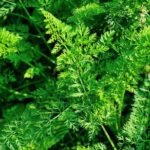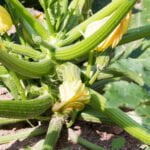Turkey manure is a popular and effective fertilizer for gardens, but many gardeners wonder, does turkey manure burn plants and vegetable gardens? It is important to understand the composition of turkey manure, its effects on different types of plants, and guidelines for proper application in order to avoid any potential burn. In this article, we will delve into the benefits of using turkey manure as a fertilizer, as well as address common misconceptions and provide tips for its proper use.
Turkey manure is a nutrient-rich organic fertilizer that can significantly improve soil quality and plant growth. Packed with essential nutrients like nitrogen, phosphorus, and potassium, it can help promote healthy plant development. However, due to its high nitrogen content, improper application of turkey manure can potentially lead to plant burn. Understanding the composition of turkey manure and its effects on different plants is crucial for successful gardening.
When it comes to using turkey manure in vegetable gardens, it is essential to follow specific guidelines to prevent any negative impact on plant health. From determining the right amount to use based on soil conditions to understanding the best application methods, gardeners need to be well-informed about how to properly incorporate turkey manure into their gardening routine.
In the following sections, we will explore these guidelines in more detail and provide real experiences from case studies of using turkey manure in gardens.
Understanding the Composition of Turkey Manure
Turkey manure is a popular choice for gardeners and farmers due to its rich nutrient composition. Understanding the exact composition of turkey manure can help in better utilizing its benefits for plant growth. The following are the key components found in turkey manure:
- Nitrogen: Turkey manure is rich in nitrogen, a crucial element for plant growth and development. This nutrient promotes leafy green growth and overall plant vigor.
- Phosphorus: Phosphorus is essential for root development, flower formation, and fruit production in plants. Turkey manure contains a good amount of phosphorus, making it beneficial for overall plant health.
- Potassium: Potassium helps plants in various ways, such as improving disease resistance, regulating water usage, and enhancing fruit quality. Turkey manure provides a significant amount of potassium to support these functions in plants.
- Organic Matter: Apart from the major nutrients, turkey manure also contains organic matter that improves soil structure, retains moisture, and supports beneficial microbial activity in the soil.
The balance of these nutrients makes turkey manure an excellent natural fertilizer for both gardens and agricultural crops. When used properly, it can significantly improve soil fertility and enhance plant growth.
In addition to macro-nutrients like nitrogen, phosphorus, and potassium, turkey manure also contains micronutrients such as calcium, magnesium, sulfur, and trace elements like iron and zinc. These micronutrients play vital roles in various physiological processes within plants, ensuring their overall health and productivity. Therefore, incorporating turkey manure into gardening practices can provide a comprehensive range of essential nutrients for plant growth.
The Effects of Turkey Manure on Different Types of Plants
Turkey manure is a popular choice for gardeners and farmers due to its high nutrient content, which can benefit different types of plants in various ways. When it comes to the effects of turkey manure on different plants, it’s important to understand how this natural fertilizer can impact their growth and overall health.
Here are some key points to consider about the effects of turkey manure on different types of plants:
– Fruit-Bearing Plants: Turkey manure can be beneficial for fruit-bearing plants such as tomato vines, pepper bushes, and berry bushes. The nutrients in turkey manure can promote healthy fruit development and increase yield.
– Leafy Greens: Plants like lettuce, spinach, and kale can also benefit from the use of turkey manure. The nitrogen and other nutrients in the manure contribute to robust leafy growth, resulting in more abundant harvests.
– Root Vegetables: Root crops such as carrots, radishes, and potatoes can thrive with the use of turkey manure. The rich organic matter helps improve soil structure and provides essential nutrients for root development.
It’s important to note that while turkey manure can have positive effects on a wide range of plants, proper application is crucial to avoid potential issues such as burning or over-fertilization. By understanding the specific needs of different plant varieties, gardeners can make the most out of using turkey manure as a fertilizer.
Guidelines for Using Turkey Manure in Vegetable Gardens
Proper Application of Turkey Manure
When it comes to using turkey manure in vegetable gardens, proper application is key to preventing plant burn. It is important to note that fresh turkey manure should never be directly applied to the garden as it can potentially harm the plants due to its high nitrogen content.
Instead, it should be composted for at least six months before use. Composting not only reduces the risk of burning plants, but it also allows beneficial microorganisms to break down the nutrients into a form that is more readily absorbed by plants.
Timing and Frequency of Application
The timing and frequency of applying turkey manure are essential factors to consider for a successful and healthy vegetable garden. In general, the best time to apply composted turkey manure is during the spring or fall, prior to planting or as a top dressing around already established plants.
Additionally, it is recommended to avoid over-application of turkey manure as excessive amounts can still lead to plant burn. A general guideline is to apply no more than 1 inch of composted turkey manure per season.
Combining With Other Fertilizers
Another important consideration when using turkey manure in vegetable gardens is its potential combination with other fertilizers. While composted turkey manure provides an excellent source of nitrogen and other essential nutrients, it may still lack certain elements that are crucial for plant growth. Therefore, combining it with other organic fertilizers or amendments such as bone meal or seaweed fertilizer can help provide a more balanced nutrient profile for optimum plant health and productivity.
Common Misconceptions About Turkey Manure and Plant Burn
There are several common misconceptions about using turkey manure as a fertilizer in gardens, one of which is the belief that it will burn plants. However, when used correctly, turkey manure can actually be very beneficial for plants and vegetable gardens. The key is to understand the proper way to use it and to follow guidelines to avoid any potential issues.
One misconception about turkey manure is that its high nitrogen content makes it likely to burn plants. While it is true that fresh turkey manure has a high nitrogen content, when used in moderation and allowed to compost properly, it can provide a healthy dose of nutrients for plants without causing any harm. Another misconception is that all plants are sensitive to turkey manure, but in reality, some varieties are more tolerant than others.
It’s important for gardeners to understand that like any type of fertilizer, improper use of turkey manure can indeed result in plant burn. This can happen if the manure is applied too generously or directly onto the plant stems or leaves. However, with proper application and understanding of its composition and benefits, gardeners can enjoy the advantages of using turkey manure without fear of damaging their plants.
| Plant Type | Effect of Turkey Manure |
|---|---|
| Tomatoes | May cause excessive leafy growth if not used properly |
| Squash | Tolerant to moderate amounts of turkey manure |
| Lettuce | Can suffer from nitrogen burn if not used with caution |
Tips for Properly Applying Turkey Manure to Avoid Plant Burn
When it comes to using turkey manure as a fertilizer for your plants and vegetable gardens, the key is to ensure that it is applied properly in order to avoid any potential plant burn. While turkey manure offers many benefits for plant growth and soil health, its high nitrogen content can potentially harm plants if not used correctly. Here are some tips for properly applying turkey manure to avoid plant burn.
First and foremost, it’s crucial to compost the turkey manure before using it in your gardens. Fresh manure can be too strong for plants, so allowing it to decompose through composting helps to reduce its potency and makes it safer for use as a fertilizer. This also helps to eliminate any harmful bacteria that may be present in the fresh manure.
Another important tip is to avoid directly applying fresh or uncomposted turkey manure near the roots of young or sensitive plants. Instead, mix the composted manure into the soil before planting or use it as a top dressing around established plants. This allows the nutrients from the manure to gradually release into the soil without overwhelming the plants.
Lastly, consider diluting the composted turkey manure with other organic matter or soil amendments before application. This can help mitigate any risk of plant burn by ensuring that the nutrients from the manure are balanced with other beneficial elements in the soil. Additionally, incorporating organic matter into the soil promotes improved water retention and nutrient absorption for healthier plants overall.
By following these tips for proper application, you can harness the benefits of turkey manure as a natural fertilizer while minimizing any risk of plant burn in your gardens.
Case Studies
Positive Experiences
Many gardeners have reported positive experiences when using turkey manure in their gardens. One gardener, Sarah Johnson, shared her experience of using turkey manure as a fertilizer for her vegetable garden. She noted that the turkey manure improved the overall health and yield of her plants. Her tomatoes, in particular, showed remarkable growth and produced larger, juicier fruit.
Negative Experiences
On the other hand, there are also gardeners who have had negative experiences with turkey manure. One such case is that of Mark Davis, who applied turkey manure to his flower garden without properly composting it first. As a result, some of his plants showed signs of burn and distress. This highlights the importance of following proper guidelines when using turkey manure as a fertilizer.
Lessons Learned
These real-life experiences demonstrate that the impact of turkey manure on gardens can vary depending on a number of factors, such as composting methods, soil conditions, and the specific needs of different plant species. It is important for gardeners to take these factors into consideration and learn from the experiences of others when utilizing turkey manure in their own gardens.
Alternative Fertilizer Options for Vegetable Gardens
When it comes to fertilizing vegetable gardens, there are numerous options available aside from using turkey manure. While turkey manure is an effective and natural fertilizer, some gardeners may prefer alternative options for a variety of reasons. One popular alternative is compost, which is made from decomposed organic materials such as kitchen scraps, yard waste, and even newspaper. Compost not only provides essential nutrients for plants but also improves soil structure, retains moisture, and suppresses diseases.
Another viable option is using commercial organic fertilizers that are specifically formulated for vegetable gardens. These fertilizers are often well-balanced in terms of nutrients and can be tailored to the specific needs of different types of vegetables.
Some gardeners also opt for fish emulsion or seaweed-based fertilizers as they are high in nutrients and can be easily absorbed by plants. Additionally, rock phosphate and green sand are natural mineral-based fertilizers that provide slow-release nutrients for long-term plant health.
For those who prefer a more hands-off approach to fertilizing their vegetable gardens, there are granular slow-release fertilizers available on the market. These products gradually release nutrients over time, reducing the need for frequent applications. Lastly, cover cropping is another effective alternative to synthetic or animal-based fertilizers. Planting cover crops like clover or hairy vetch can improve soil fertility by fixing nitrogen and adding organic matter when turned into the soil.
Ultimately, there is no one-size-fits-all solution when it comes to choosing a fertilizer for vegetable gardens. Each option has its own set of benefits and considerations, so it’s important for gardeners to assess their specific needs and preferences before making a decision. By exploring different alternatives to turkey manure, gardeners can find the best fit for their gardening practices while promoting healthy plant growth.
Conclusion
In conclusion, the use of turkey manure in gardens and vegetable plots can be a beneficial practice as long as it is used properly and in moderation. While there have been cases of plant burn associated with the application of turkey manure, these instances are often due to overapplication or improper usage rather than inherent properties of the manure itself.
With its high nitrogen content and valuable nutrients, turkey manure can provide significant benefits to plants and vegetables when applied correctly.
Understanding the composition of turkey manure and how it affects different types of plants is crucial for successful use. By following guidelines for its application and taking into account factors such as soil type, weather conditions, and the specific needs of the plants being fertilized, gardeners can minimize the risk of plant burn while still reaping the many advantages that turkey manure has to offer.
Ultimately, while there are alternative fertilizer options available for vegetable gardens, turkey manure can be a cost-effective and environmentally friendly choice for many gardeners. By dispelling common misconceptions about its potential to burn plants and by providing clear instructions on its proper application, more gardeners can confidently utilize this natural fertilizer to promote healthy growth in their gardens.
Frequently Asked Questions
Is Turkey Manure Good for Vegetable Garden?
Turkey manure can be beneficial for a vegetable garden as it is high in nutrients like nitrogen, potassium, and phosphorus. However, it should be composted first to avoid burning the plants with excessive ammonia. Once composted, it can improve soil structure and fertility, leading to healthier and more productive vegetable plants.
Which Vegetables Do Not Like Manure?
Some vegetables are sensitive to fresh manure due to its high levels of ammonia and potential pathogens. These vegetables include root crops like carrots, potatoes, and radishes, as well as leafy greens such as lettuce and spinach. It’s best to avoid using fresh manure on these plants to prevent any negative effects on their growth.
What Is the Best Manure for a Vegetable Garden?
The best manure for a vegetable garden is well-aged or composted manure from herbivores like cows, horses, or sheep. This type of manure has lower levels of ammonia and pathogens compared to fresh manure, making it safer for use in the garden.
Additionally, aged manure has had time to break down into a form that is more easily absorbed by plants, providing them with essential nutrients for healthy growth.

If you’re looking to get into vegetable gardening, or are just looking for some tips on how to make your current garden better, then you’ve come to the right place! My name is Ethel and I have been gardening for years. In this blog, I’m going to share with you some of my best tips on how to create a successful vegetable garden.





